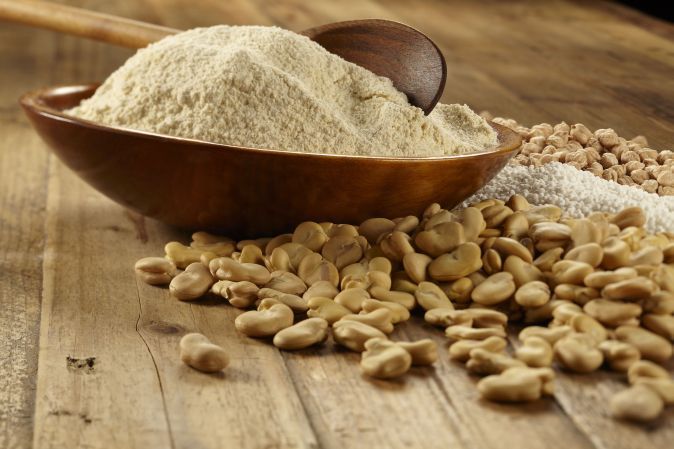How to Export Legume Flours from Nigeria: A Guide for Nigerians
How to Export Legume Flours from Nigeria: A Guide for Nigerians
Legume flours are rich in protein, fiber and many essential minerals and vitamins. However, they are not readily available in Nigeria. This is mostly because legumes such as beans and peas require processing that is more complicated than just milling or grinding them to extract their flour. This process needs to be done through a wet-milling process where water is added to the raw material which then forms a paste-like substance called a ‘mash’. The mash is then dried and milled into flour for baking or cooking.
In this article, we will explore how you can go about exporting legume flours from Nigeria. Let’s get started!
Why Export Legume Flours from Nigeria?
The legume flours are rich in protein, fiber and many essential minerals and vitamins. However, they are not readily available in Nigeria. This is mostly because legumes such as beans and peas require processing that is more complicated than just milling or grinding them to extract their flour. This process needs to be done through a wet-milling process where water is added to the raw material which then forms a paste-like substance called a ‘mash’. The mash is then dried and milled into flour for baking or cooking.
In this article, we will explore how you can go about exporting legume flours from Nigeria. Let’s get started!
How to Export Legume Flours from Nigeria
Here’s an overview of what you need to know about exporting legume flours from Nigeria:
1. What is the wet-milling process?
The wet-milling process is a process involving the extraction of flour from legumes like beans and peas. The wet-milling process starts by soaking the raw material like beans and peas in water for about 12 hours which then forms a paste-like substance called a mash. The mash is dried and then milled into flour.
The Process of Wet-Milling
Wet-milling is a process that starts with raw materials, such as beans, that are soaked in water for an extended period of time, usually overnight. The soaked beans are then ground to form a paste-like substance called a ‘mash’. The mash is then dried and milled into flour.
Although the process of wet-milling may sound simple, it is complicated and requires the use of advanced machinery and techniques. This is why it is better left to professionals and companies that specialize in legume flour production.
A company that supplies legume flours is Agron Foods Limited, which offers different varieties of legume flour including soybean flour, soybean meal, and soybean grits. It also offers an organic line of legume flours made from organically grown soybeans. You can find their products on Amazon or at their store in Lagos.
Is There A Market For Nigerian Legume Flours Outside Nigeria?
Nigeria is not the only country that has a shortage of legume flours. Countries in Africa, Asia, Latin America and the Caribbean also have limited access to legume flours. Legumes are considered to be a major source of protein in these developing countries, but they are usually imported from abroad.
So, is there a market for Nigerian legume flours outside Nigeria? Yes!
There are many countries in Africa, Asia, Latin America and the Caribbean with limited access to legume flours. Nigeria is not the only country with a shortage of legume flours. It is likely that people in these countries would be willing to buy Nigerian legume flour if it was readily available.
There are many Nigerian entrepreneurs who are already trading in legume flours on the international market. These entrepreneurs are exporting Nigerian legume flour to countries like Canada, USA, United Kingdom, Europe and Australia. There is great potential for Nigerians who want to export legume flour from Nigeria.
How to Begin the Process of Exporting Legume Flours from Nigeria
If you are a Nigerian who has a passion for cooking or baking with legume flours, then this article is for you. If you are also thinking about exporting legume flours from Nigeria, then this article is for you too.
But before you start, you will need to understand the process of exporting legume flours from Nigeria. To do this, you will need to be compliant with Nigerian regulatory agencies, know the export channels available to you, and be able to specify the quantities of legume flours available.
The Nigerian regulatory agencies are made up of the Nigerian Customs Service (NCS), the Nigerian Food and Drug Administration (NFDAC), the Nigerian Standards Organisation (NSO) and the Nigerian Export Promotion Council (NEPC). These agencies are responsible for regulating food products in Nigeria.
When exporting legume flours from Nigeria, there are two major channels you can use. These are bulk containers and air freight. The most important thing to remember about export is that you have to specify the quantity of legume flours available with your request to export. This is so that exporters can give accurate quotes.
Conclusion
As you can see, exporting legume flour from Nigeria is not an easy process. There are several steps involved in getting it right. However, if possible, it can be well worth it to explore this opportunity. Not only will you be able to provide a much needed product to the Nigerian market, but you will also be able to create your own brand in the process.
If you want to learn more about legumes and their nutritional benefits, visit our website at www.freshworldfoods.com.








LEAVE A COMMENT
You must be logged in to post a comment.